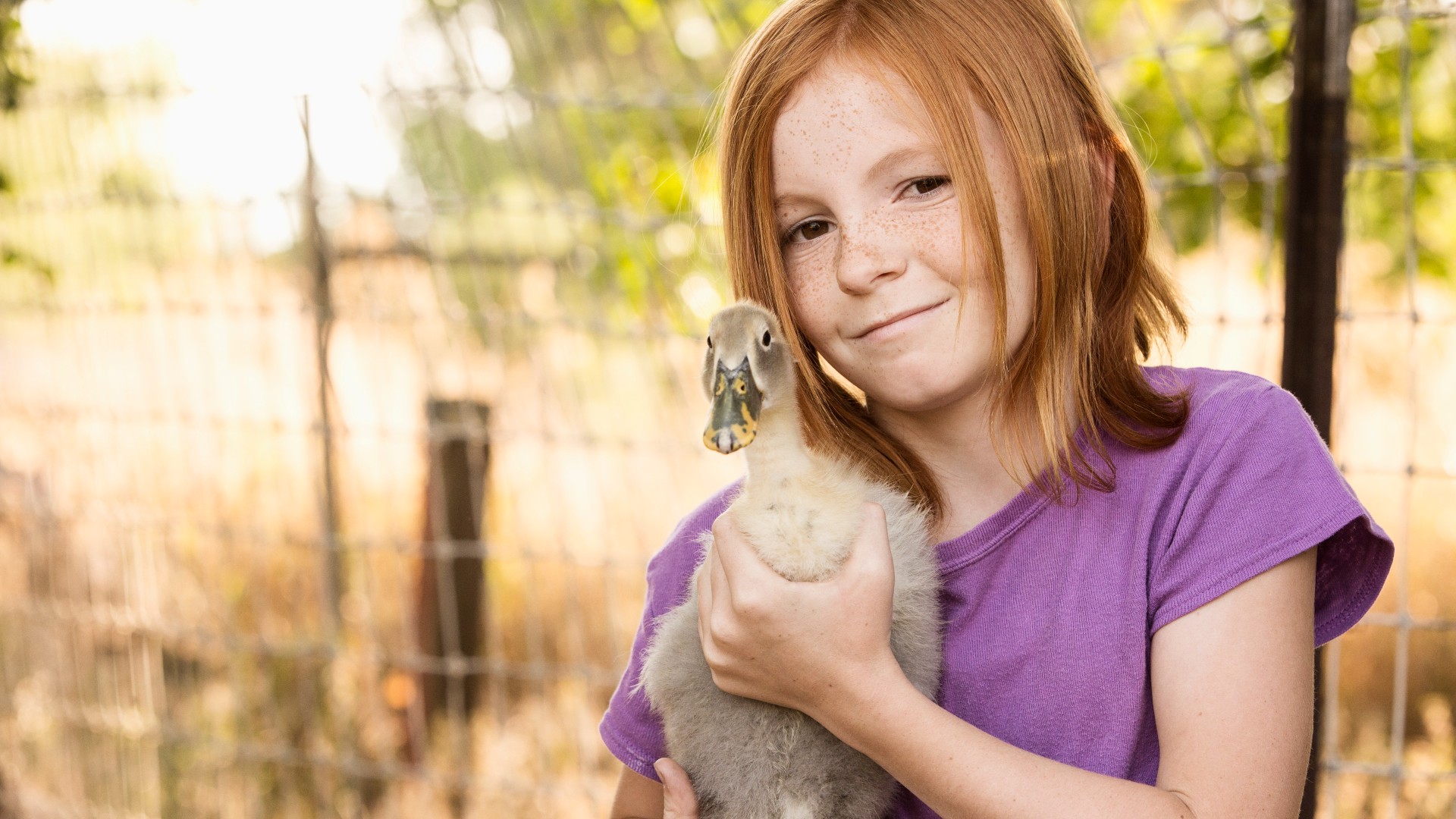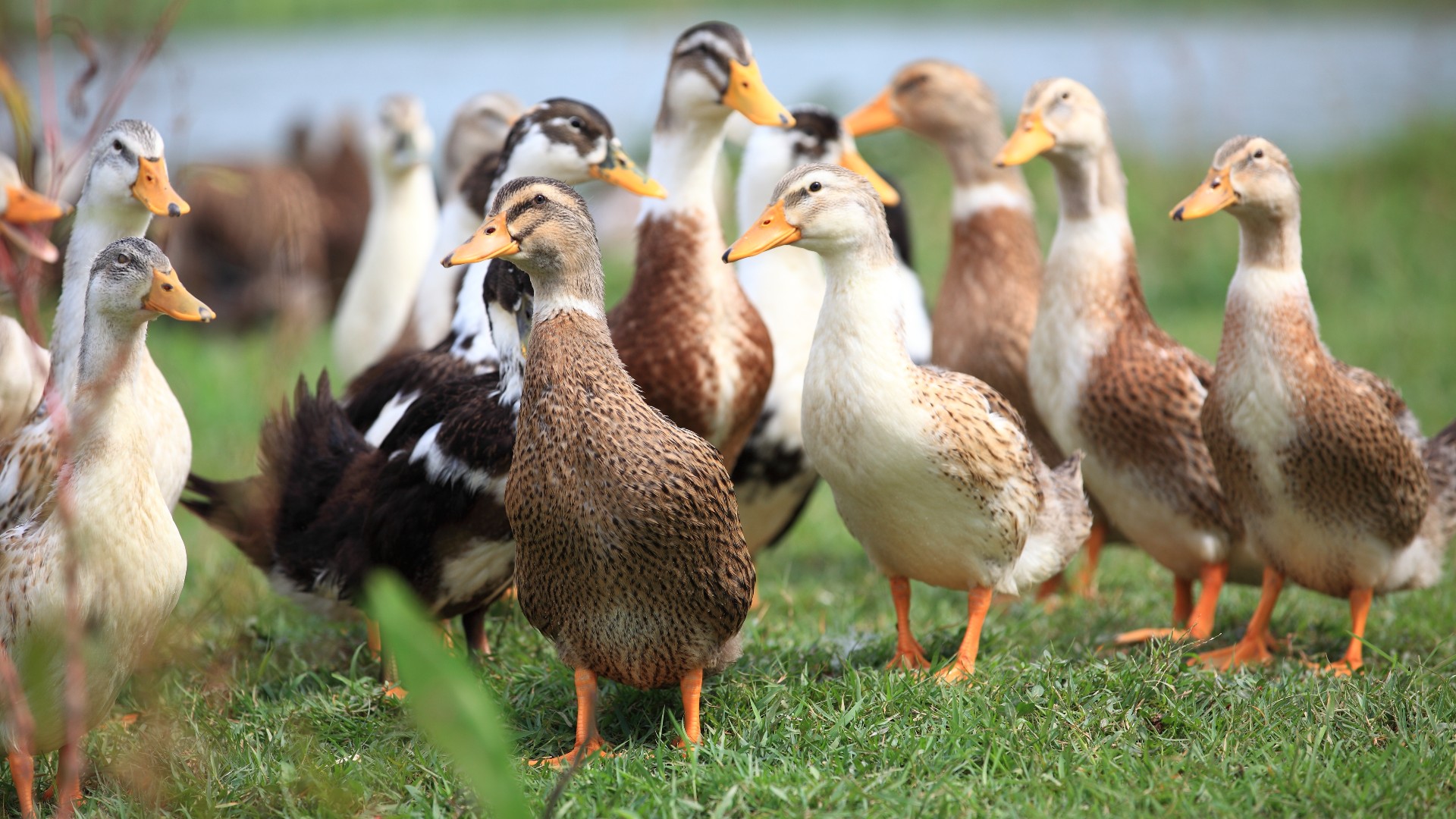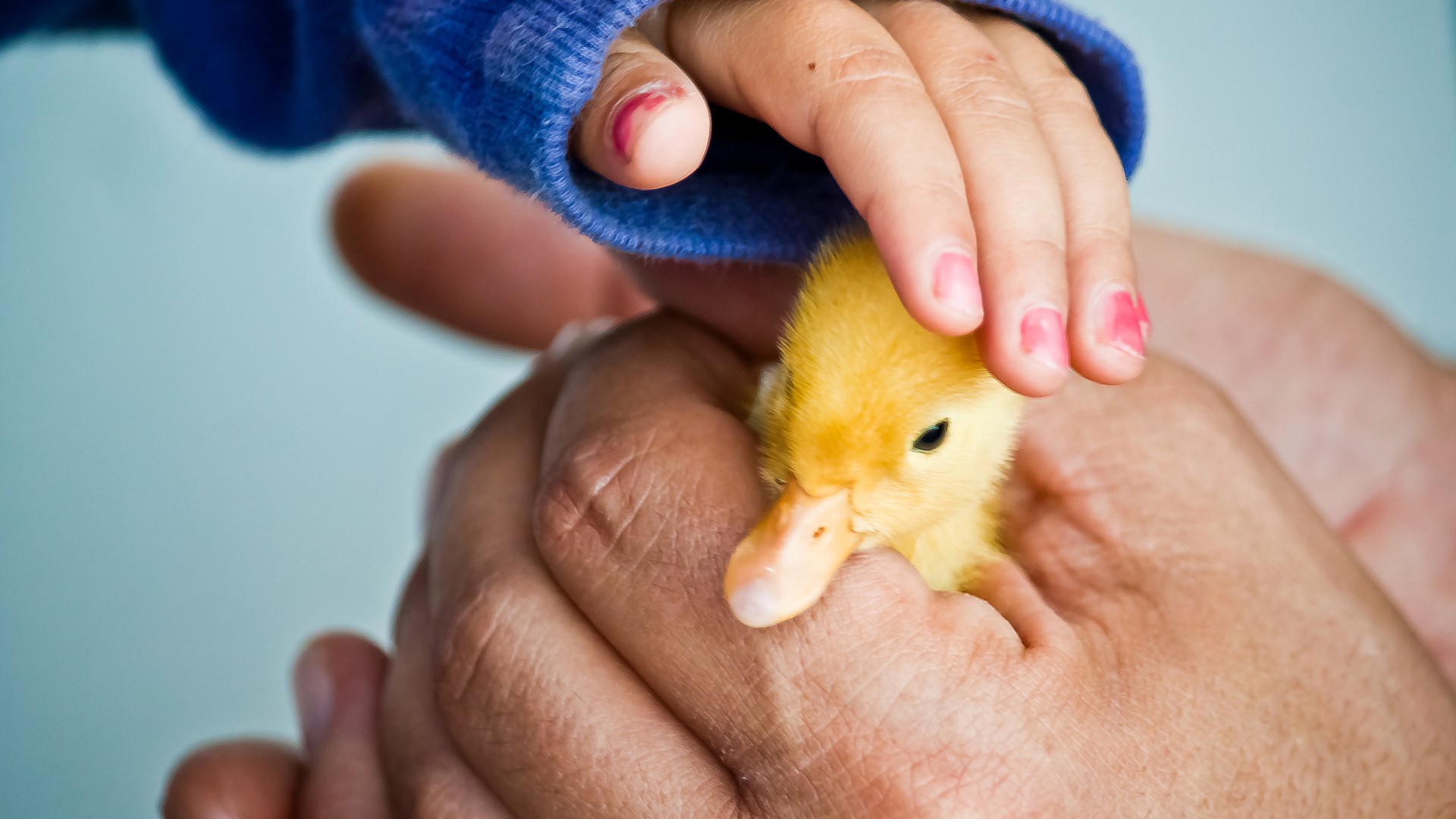Do ducks make good pets? Pros and cons and how to care for them
Do ducks make good pets? We explore the pros and cons, plus share our top tips on how to care for your beaked buddy if you decide to adopt

Get the best advice, tips and top tech for your beloved Pets
You are now subscribed
Your newsletter sign-up was successful
Do ducks make good pets? If you’ve ever watched a raft of ducks happily frolicking about in a lake or pond, then it’s a question you may have found yourself pondering. And the good news is, yes, these adorable poultry birds can make wonderful pets as long as they’re kept in an appropriate environment.
That being said, there’s a lot more to duck care than you might think. Unlike our smaller feathered friends who can set up home in the best parrot cages, our larger beaked buddies require a lot more space. They are also highly outgoing and social creatures who like spending their days and nights with their paddling mates.
While there are certainly lots of benefits to having a duck as a pet - think lots of manure to fertilize your garden and plenty of fresh eggs for breakfast - there are also some fairly big drawbacks.
As you’d expect, ducks are incredibly loud, so there’s noise pollution to consider and they’re also messy, which means a lot of cleaning up after them. Unless you’re able to let them free roam on a large section of land, keeping ducks comes with a lot of daily responsibility.
To help you decide whether keeping a duck as a pet is the right option for you, we walk you through all of the pros and cons you’ll want to be aware of before welcoming one of these highly intelligent and emotional birds into your family.
Can you have a duck as a pet?
When it comes to keeping a duck as a pet, the process is different than it would be if you were adopting a dog or a cat. The first thing you’ll need to do is to find out whether your city or state will even allow you to own a duck.
Each area has its own laws around keeping poultry as pets, with some outright forbidding it and others being more flexible. If you find that your city or state does allow you to own a duck, you’ll want to then ensure you’re clear on the parameters.
Get the best advice, tips and top tech for your beloved Pets
Some locations will say no to ducks living in residential areas but yes to ducks living on farms, while others will let you keep a duck in a town or city but will have strict limits on how many hours a day you’re allowed to let your duck outdoors for.
It’s really important that you read the laws and guidelines of the area in which you live carefully as the last thing you want is to have bonded with your feathered friend only to have to return them.

Pros of having a duck as a pet
While ducks are all unique, on the whole, they tend to have the most wonderful personalities, which can make them so much fun to get to know. Alongside their quirky little natures, there are several other benefits to owning a pet duck that make these birds well worth considering:
- An abundance of eggs - If you love nothing more than starting your day with a steaming hot plate of eggs or whipping up an omelet for lunch, then you’re going to feel like you’ve died and gone to heaven having a duck as a pet. Unlike chickens, ducks produce eggs all year round and will continue to do so until they reach around six to eight years of age.
- They’re the ultimate mood booster - While this may come as a surprise, ducks are very smart creatures and just like dogs and cats, they can understand commands, will engage with toys and will take great delight in playing games. They can also come to really enjoy cuddles, especially if you adopt a duckling and gently train it to like being with people.
- They tend to be great with children - As long as they’re handled and engaged with appropriately, ducks tend to be very gentle, so they can be a good choice for a pet if you have young children in the house. Ducks often grow to be very affectionate with their humans and some will be very tolerant of being petted and cuddled. They can also be a wonderful way of teaching children about the responsibilities that come with owning a pet.
Cons to owning a duck
While ducks can make fantastic pets when kept under the right circumstances, there are some cons that you’ll want to consider before making the decision to welcome one of these feathered friends into your home:
- Noise pollution - It’s important to understand that ducks are not quiet creatures. In fact, quite the opposite. Highly vocal and with a natural love of communicating, ducks love nothing more than a good chat with their buddies. Your level of noise tolerance (and that of your neighbors if you live in close proximity to others) is something you’ll want to think carefully about before getting a duck.
- They don’t do well alone - We really don’t recommend you have only one duck as a pet. Extremely social, they prefer the company of many duck friends and suffer the same feelings of loneliness, isolation and depression as we humans do when they’re kept in solitary conditions.
- Expect a lot of mess - They may be cute, but boy oh boy do these guys poop a lot. If they’re confined to an enclosure, expect to have a lot of cleaning to do each day as not only do ducks poop frequently, but they’ll do so absolutely everywhere, including any pools or tubs of water you’ve left out for them. If you don’t fancy spending time each day cleaning up large amounts of wet, stinky mess, a pet duck is definitely not for you.
How to take care of a pet duck

Once you’ve weighed the pros and cons of having a duck as a pet and have decided to proceed, here are a few tips for caring for your new beaked buddy to ensure they stay happy and healthy:
1. Housing
You’ll need to invest in a good quality, predator-proof duck coop to house your feathered friend when you’re not home.
It will need to be kept out of the sun, provide protection from the wind and be made from solid sheeting or welded mesh. In terms of the size, at a minimum you’ll want 0.5 sq meters of space per duck.
2. Bedding
Make sure both the flooring and the bedding are waterproof and create a specific private nesting spot in the coop as well. Lino and tarps work well as flooring and then on top of that you could use rice hulls, mulch or wood shavings. Recycled paper will also do the trick.
3. Water
You’ve probably already noticed just how much ducks love water. Expect each duck to use about one liter of fresh water per day to clean themselves. We recommend you create a little pool for them with water that’s deep enough for them to fully submerge their head.
Kids clam-style pools are ideal as the bottoms are less slippery than a tub, making it easy for ducks to climb out. Make sure you supervise your duck the first few times they use their tub so that you know that they can get safely in and out on their own.
4. Health care
As long as they’re kept in a clean environment and fed a nutritious, duck-specific diet, pet ducks can live up to 20 years of age with relatively few issues.
They do need to be wormed every six months with a poultry wormer and they can be clumsy at times, which may result in the odd foot injury that will need checking over by a vet, but other than that, you’ll find it fairly easy to keep them in good health.
Should you get a pet duck?
Ducks tend to be fairly hardy and adaptable little creatures, so long as they’re provided with good food, clean drinking water, a dry and safe coop, and protection from extreme weather conditions and predators.
While they can make for wonderful pets, they’re by no means a low-maintenance one, so be sure to carefully weigh the pros and cons before welcoming one of these adorable feathered friends into your family.

Kathryn is a freelance writer who has been a member of the PetsRadar family since it launched in 2020. Highly experienced in her field, she's driven by a desire to provide pet parents with accurate, timely, and informative content that enables them to provide their fur friends with everything they need to thrive.
Kathryn works closely with vets and trainers to ensure all articles offer the most up-to-date information across a range of pet-related fields, from insights into health and behavior issues to tips on products and training.
When she’s not busy crafting the perfect sentence for her features, buying guides and news pieces, she can be found hanging out with her family (which includes one super sassy cat and a kitten), drinking copious amounts of Jasmine tea and reading all the books.
She has written for a range of publications, including Fit&Well, Top Ten Reviews, LiveScience, Goodto, and Product Hunt.
